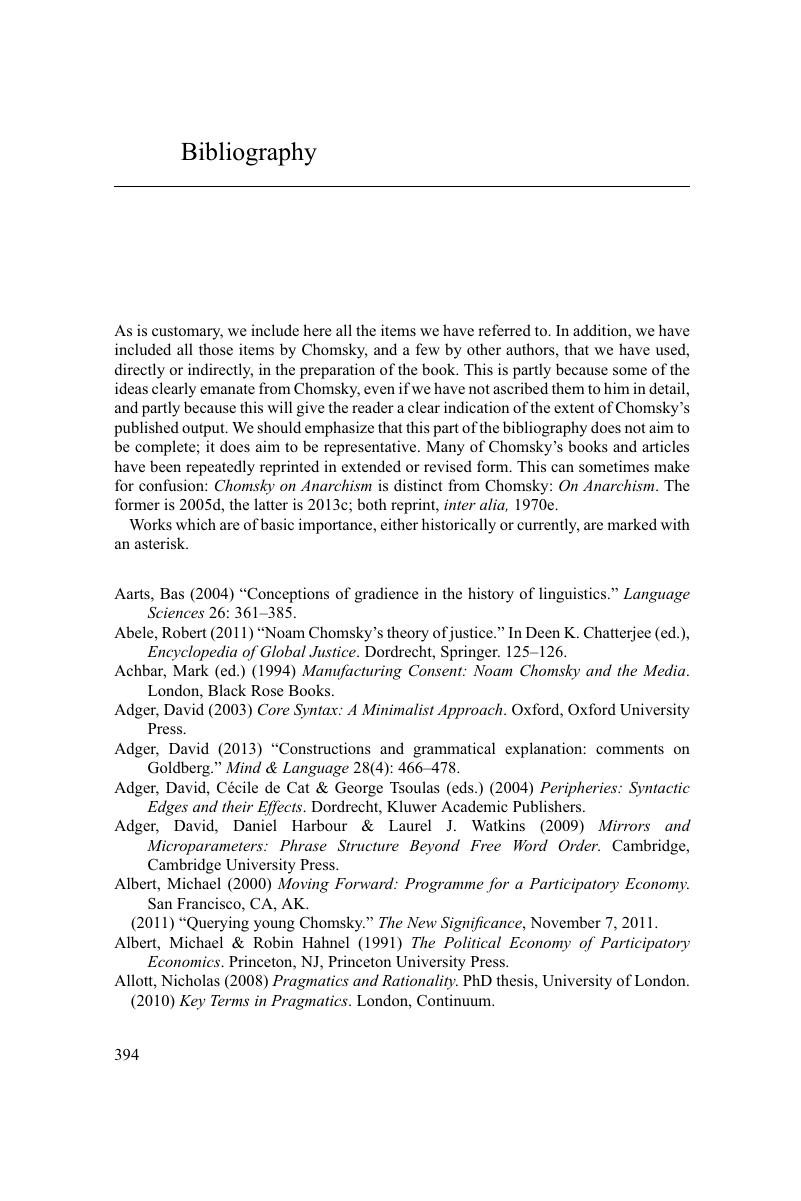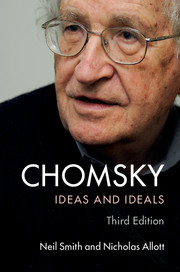Book contents
- Frontmatter
- Dedication
- Contents
- Preface to the third edition
- Preface to the second edition
- Preface to the first edition
- Introduction
- 1 The mirror of the mind
- 2 The linguistic foundation
- 3 Language and psychology
- 4 Philosophical realism: commitments and controversies
- 5 Language and freedom
- Conclusion
- Envoi
- Notes
- Bibliography
- Index
- References
Bibliography
Published online by Cambridge University Press: 18 December 2015
- Frontmatter
- Dedication
- Contents
- Preface to the third edition
- Preface to the second edition
- Preface to the first edition
- Introduction
- 1 The mirror of the mind
- 2 The linguistic foundation
- 3 Language and psychology
- 4 Philosophical realism: commitments and controversies
- 5 Language and freedom
- Conclusion
- Envoi
- Notes
- Bibliography
- Index
- References
Summary

- Type
- Chapter
- Information
- ChomskyIdeas and Ideals, pp. 394 - 446Publisher: Cambridge University PressPrint publication year: 2016

